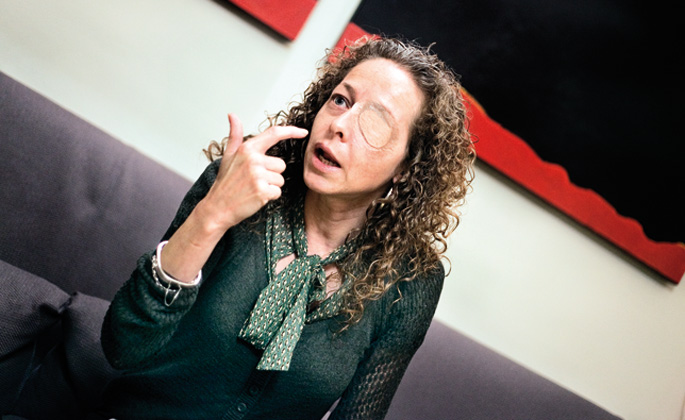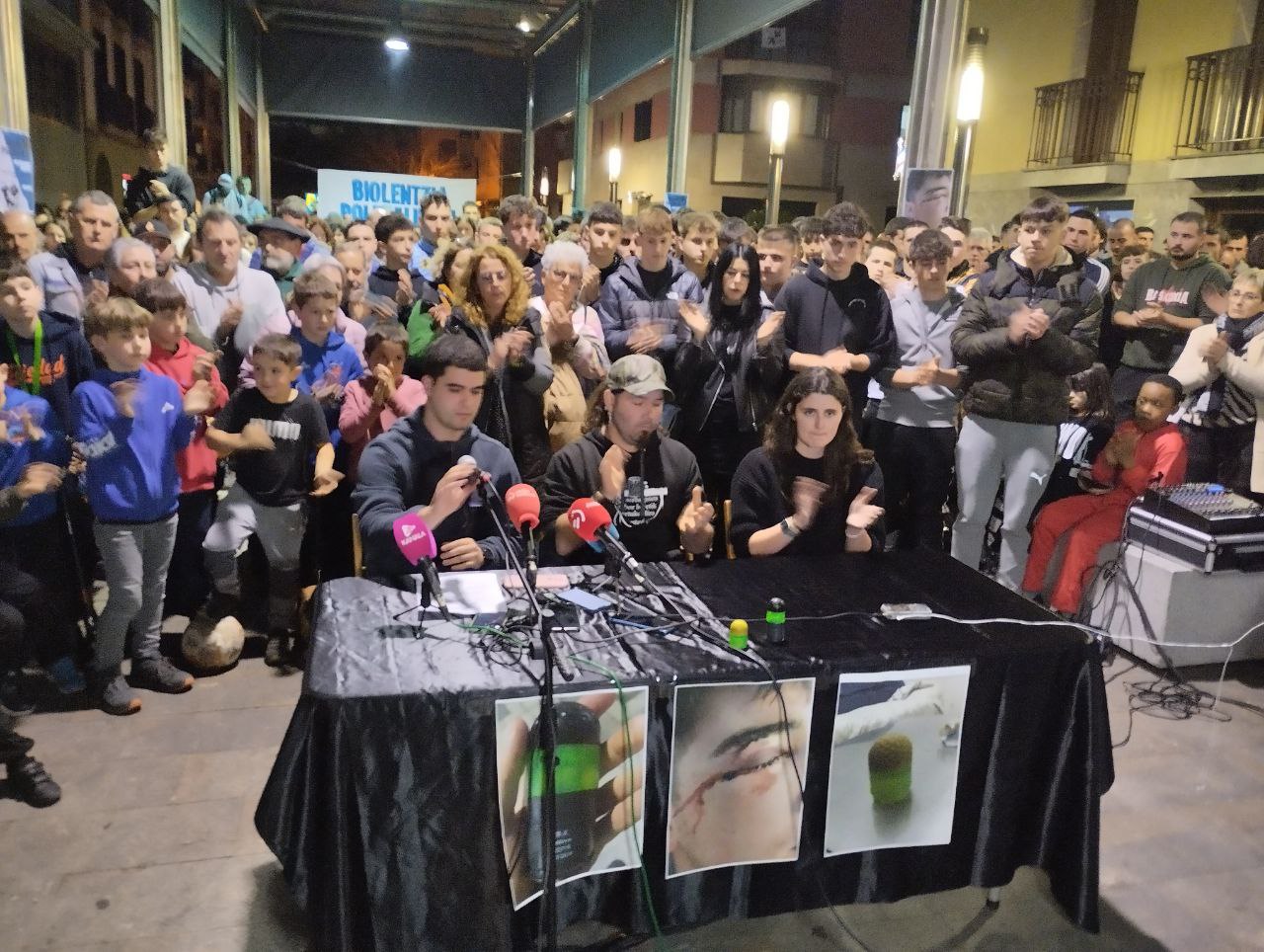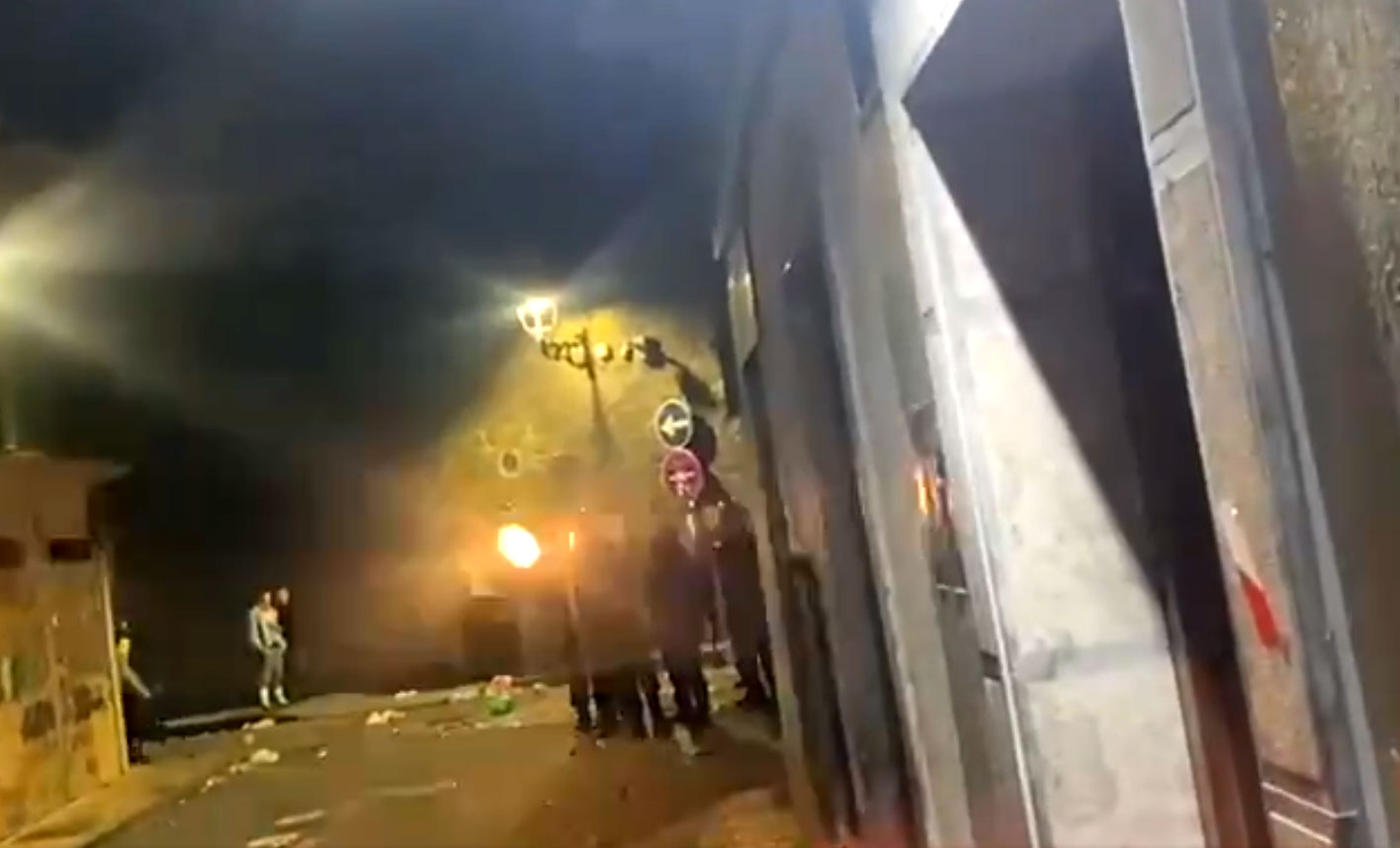"Reaching the judgment is a victory for the victims of the rubber balls"
- May 14, 2012 was the day of the general strike. A rubber ball shot by the Mossos d'Esquadra hit his face and lost his left eye. This is the first time a case of this kind has been brought to court in Catalonia and on 11 April two policemen will be tried. Thanks to the work carried out during these years, they have succeeded in banning these balls, and with judgment they want to put a point in this part of their lives. Decide on the point and the pause.

How have you lived these four years after losing your eye?
They have been very hard. Eye loss has had profound consequences for me. I have post-traumatic stress and I have to go to the psychologist. In the physical sphere, I have an absolute disability and I cannot do my previous job. In addition, the work done to make my case known has also been very laborious. The latter, however, has had a prize.
You have become the image of the fight for the removal of rubber balls.
I'm not sure why, but I think there are some factors to it. I am a woman and I do not belong to any institution, collective or political group. They've seen me as a normal person, and so many have felt that what's happened to me can also happen to them.
Despite the fact that the videos prove otherwise, the Department of the Interior of the Generalitat and the Mossos have repeatedly denied the use of rubber balls.
I felt helplessness. In the last four years, nearly seven different versions of these songs have been published to hide what happened. It offered them time and time again the possibility of meeting me to show them videos and photographs that show that rubber balls were used that day and that there were loads, but nothing. They kept their version. Three counselors have been through the Department of Interior since then and only the last one has contacted me. I think Jordi Jane has the will to solve the case... Or maybe to calm down, I'm not sure. In fact, the Department of the Interior has recognised that I have been injured in the course of police action, but that there was no fault on their part. To prove this we have had to go to court.
How do you understand that there is no institutional support?
It is clear that they are trying to hide cases of police violence. That my wound was caused by a rubber ball, for example, the doctors of the hospital, who were very reluctant to write the report. Both the Department of the Interior and the Mossos have not yet acknowledged what happened on the day of tomorrow's strike. They are protected. I understand solidarity between co-workers, but covering up something that is wrong is unacceptable.
As a result of the rubber balls in recent years there have been several victims, how is it possible that there is no official recognition by the institutions?
If we are recognised as a victim, we should be compensated and the police are charged with them. This would be a precedent for all the issues that may arise next, and it is clear that the institutions are not in favour of it. My case is the first to come to court in Catalonia, even though twelve people have lost their eyes in the last ten years. Something does not work in the ranks of organizations. We don't know where the mistake is, but there it is.
Do the institutions protect police action? Why?
The institutions want to criminalise protest and the Moorish Law is the last example. They ask the people not to protest and to keep things quiet. The authorities will remain the same if nobody says anything, so protest is the only way we have to make our opinion known.
The Moorish Act will make it difficult for videos and photos to demonstrate human rights violations.
Yes, it will be harder. If there is material, it can be used in a trial, but who will dare to take photos or record video if he is in danger of being processed? In my case, for example, the videos in which the mossos throw rubber balls would not have existed.
The Generalitat has compensated you with EUR 260,000 and recognised that you were injured "in the framework of police action". However, the process is not yet over. The trial against the Mossos will begin on 11 April with the holding of a new trial. What do you want to get?
My goal is to do justice. Whatever the verdict, I believe it has been a victory for the other victims of rubber balls who have failed to get the police to demand them. With the sentence, we'll see what justice looks like. If they're acquitted, it's because the system is wrong. I am happy, however, with the work done in favour of social justice. People know what happened to me, and the police were guilty.
The victims of the rubber balls have struggled to sue those responsible, especially the senior officials. Have you had the same problem?
I do not know what has happened in other cases, but we wanted the whole police and political class to be called to testify. From counselor Felip Puig to the agent who shot. We wanted to know who allowed the rubber balls to be used. However, at the time when the examining magistrate saw the list we presented, he clearly told us that he would not declare any particular person on the list. I think the examining magistrate did everything in his power, but the Department of the Interior and the Mossos were not willing to help. They had not wanted to present most of the evidence, the few they had submitted were not worth it, and they always filed it by court order, never voluntarily.
Rubber balls have been replaced by other “non-fatal” munitions.
In the case of the material, rubber balls have been banned, but at the same time new materials such as ultrasonic cannons, Foam launchers or Taser pistols have been purchased. If they have the means to do so, if there have been no further incidents it is because they have been ordered to calm the situation. My case has done a great deal of damage to the Generalitat and to the Mossos. In order to deal with the problem, the police protocols must be reviewed and the officers must be educated. It is also necessary to amend the procedures. If the rulers believe that the problems are solved with violence, the agents on the street will do whatever the above say. That's how this militarized system is. It doesn't matter how to change the material or do more training. We must ask ourselves whether violence is the way to disperse demonstrations. Life is more valuable than anything material. I am not in favour of the burning of containers, but that does not mean that the person will be shot. This is an imposed police practice: assaulting protesters to disperse them and criminalise the protest.
After what has happened to you, what have you received from those around you, people have stopped going to demonstrations?
Many were frightened. They're afraid to go to demonstrations. If parents have young children, they are left at home, many do not dare to go alone or go home before the demonstration ends. That is the result of repression. What they have achieved through violence.
But you are clear that you will go out into the street whenever necessary.
I will continue to attend the demonstrations, because it is my opportunity and my right to express my opinion publicly. Since I lost my eye I have gone to demonstrations. There has been no charge, but I am afraid to see the police. It makes me feel insecure. However, I don't want to have that image of the police, I don't think they're all the same.
























